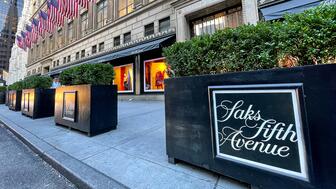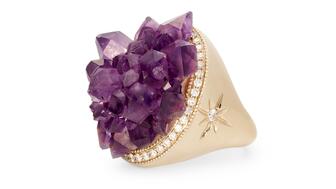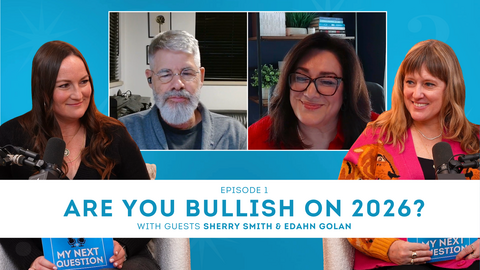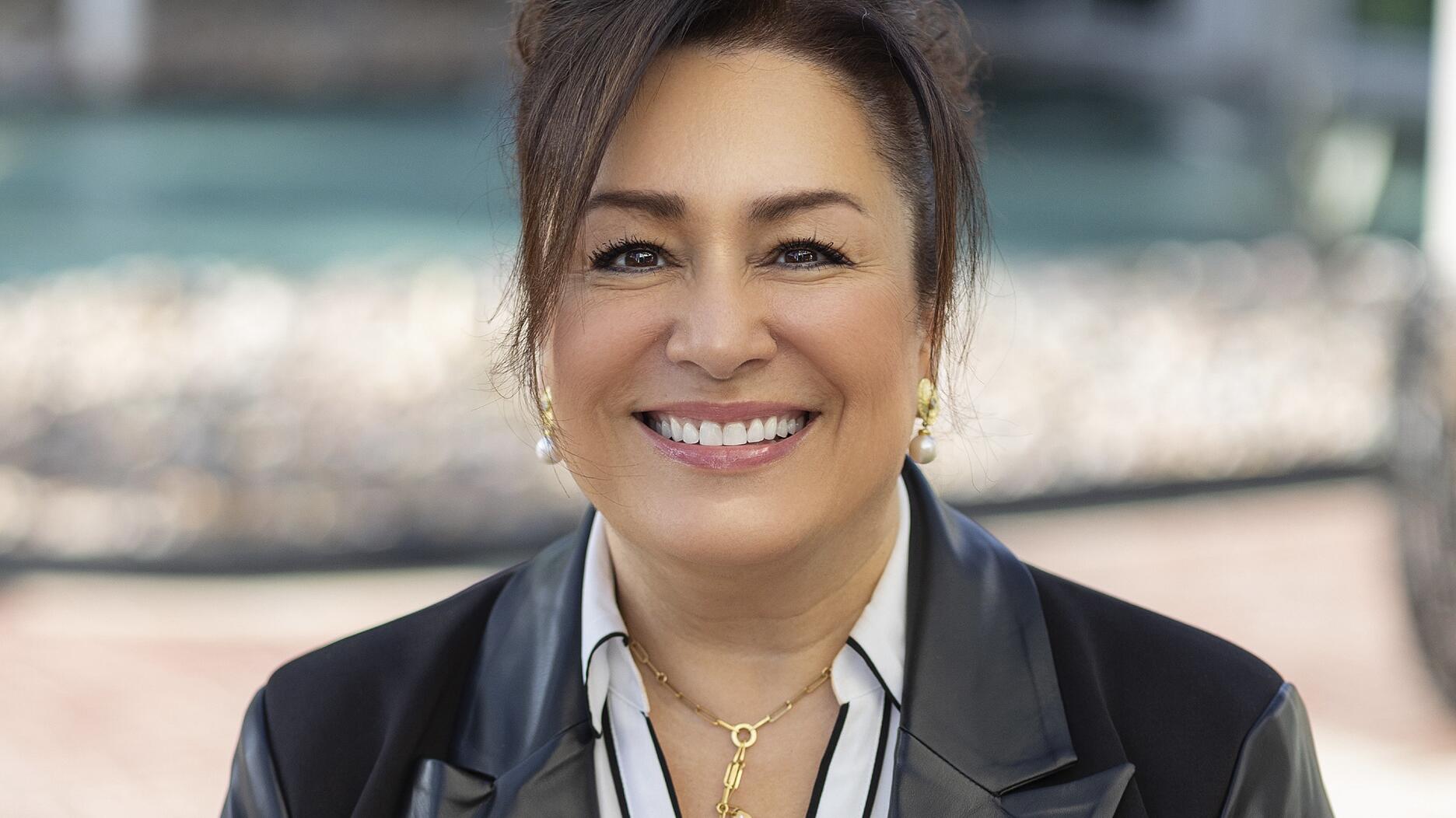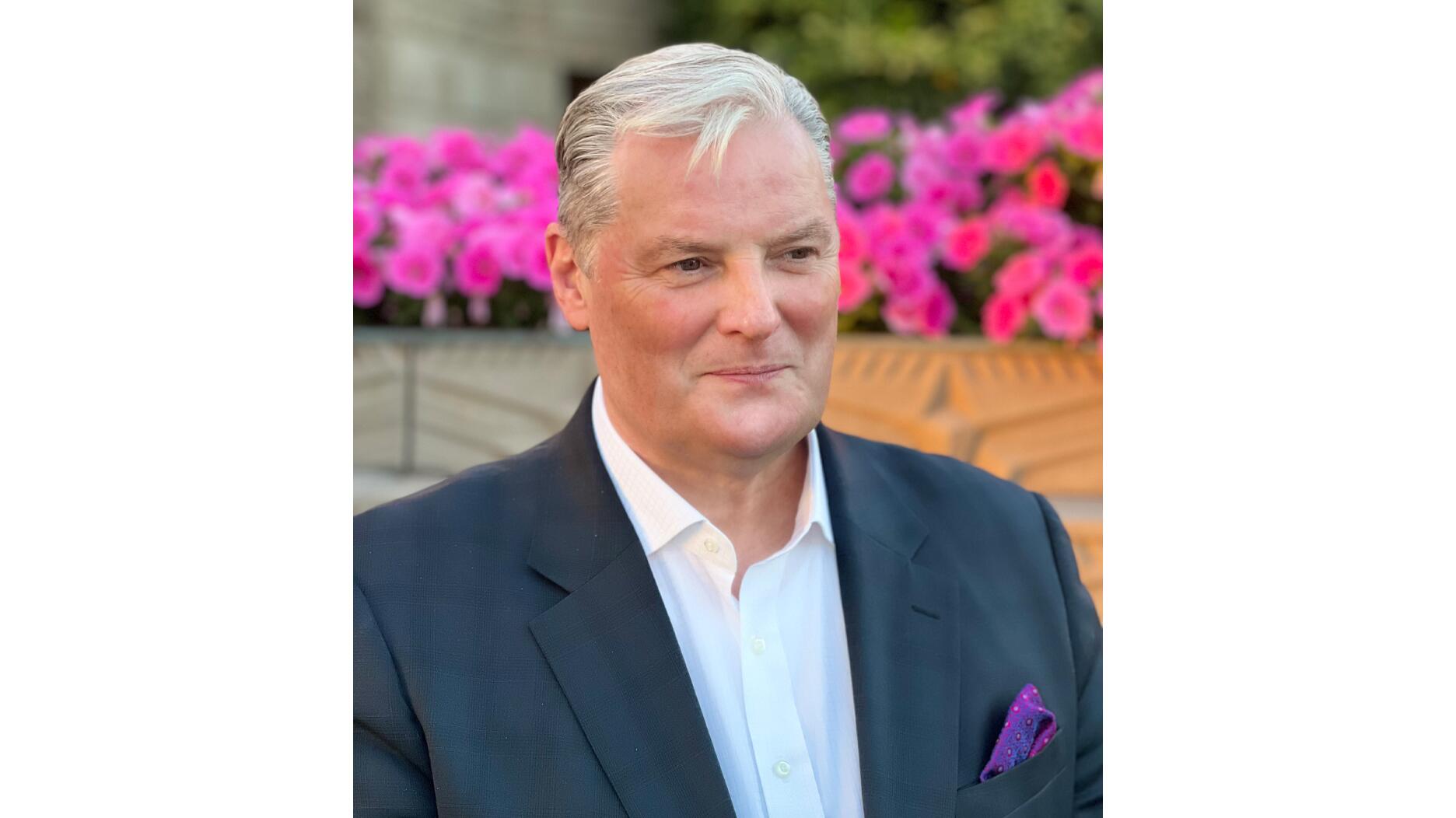Squirrel Spotting: Johnny Cash Was a Salesman
Peter Smith charts the singer’s unlikely path to sales excellence as a reminder of what jewelers need to look for when hiring salespeople.

“I couldn’t sell anything and didn’t really want to,” he said.
Later in the same interview, Cash recounted how he had virtually stalked Sam Phillips, the owner of Sun Records, to give him a listen.
“I was fully confident,” Cash said, “I was going to see Sam Phillips and record for him.”
Cash called Phillips on the phone again and again but was turned down with each call. However, rather than allowing himself to be dissuaded from his dream, he took things to the next stage.
“One day, I just decided that I’m ready to go. I went down [to Sun Records] with my guitar and sat on the front steps of his recording studio and met him (Phillips) when he came in. I said, ‘I’m Johnny Cash. I’m the one that’s been calling and if you’d listen to me, I believe you’ll be glad you did.’”
Great singers—particularly those who are also songwriters—are storytellers. Their ability to communicate emotion to complete strangers in three or four minutes is central to their believability, their authenticity.
When Johnny Cash cited his inability to sell home appliances as evidence of his lack of sales acumen, he wasn’t totally right.
He might not have been able to sell home appliances, but when it came to selling himself and his music, he was a master.
Cash’s efforts to ensure he got an audition at Sun Records was a master class in sales. A micro one, for sure, but a case study no less.
His ability thereafter to sell his songs, his stories, is one for the history books. He could sell; he just didn’t want to sell home appliances.
I don’t know if Julie Panko can sing a lick, or if she’d ever want to sell appliances, but I do know that she is an accomplished sales professional for Mountz Jewelers in Camp Hill, Pennsylvania.
Julie didn’t have a jewelry background when she applied at Mountz. In fact, she didn’t have any kind of sales background at all.
Julie, you see, drove a school bus for 15 years in south central Pennsylvania. She did so because it afforded her the opportunity to take her 2-year-old daughter, Alayna, on the bus with her.
Six years later, she was able to do the same thing for her son, Jake, when he was 2 years old.
At the time Julie heard Mountz was hiring, her wardrobe, consisting almost entirely of sweats, T-shirts, and sneakers, was not her friend. A typical morning saw her quickly put her hair into a bun, sans makeup, and head off to inspect the bus and plot her route for the day.
She said she probably had one business button-down and a skirt in those days. Julie’s life was far removed from the world of luxury, of jewelry, of Rolex, and yet she eventually became a top sales professional for Mountz Jewelers.
“Saying that you are open to hiring people without sales experience is of little consequence if you don’t structure your recruitment efforts accordingly.”— Peter Smith
Koser Jewelers’ Ryan Torrenti graduated from Lancaster Bible College with a bachelor’s degree in student ministries. Needing to pay his bills, he took the only job he could find at the time—a warehouse worker for Best Buy.
Ryan shared that he needed two references just to get an interview for the warehouse job, almost laughable by today’s standards.
Despite overwhelming evidence showing that top salespeople come from all walks of life, companies continue to advertise for people with experience in sales and then bemoan the poor quality of candidates they do somehow manage to unearth.
With that mindset, you don’t find people like Julie Panko or Ryan Torrenti—stars in their respective stores.
They would never have gotten the chance to become outstanding salespeople because they drove school buses and stocked shelves.
Saying that you are open to hiring people without sales experience is of little consequence if you don’t structure your recruitment efforts accordingly.
If you want to tap into a broader base of potential candidates—and note that conservative estimates indicate 25 percent of all people have sales wiring—then scream it from the rafters in your messaging.
Let people know that your very best people drove school buses, stocked shelves, tended bar, were schoolteachers, etc., and that you are looking for people with the ambition to be great.
People who love people. People who are self-motivated. People who want to listen. People who want to make a career in sales.
In advertising for experienced salespeople or, worse still, experienced jewelry salespeople, we are in effect conceding that we are unwilling to train the very things that can be trained (product, process) while ignoring the things that cannot be trained (motivation, empathy, resilience, work ethic).
When Julie first became a sales professional, she knew nothing whatsoever about selling luxury products; Mountz had to teach her the ropes.
But they didn’t have to worry about her wiring, her personality, her inherent decency, her drive. She brought that with her, along with a sincere passion for people and a desire to help them.
It wasn’t an easy adjustment. In fact, she told me how very challenging it was at first trying to understand and sell expensive jewelry.
“My mom lives a couple of doors down from me and I shared my early frustrations with her, telling her that I was going to give this three weeks only.”
Not surprisingly, Julie’s mom and sister encouraged her to stay the course, reminding her that she was destined for great things.
Koser Jewelers in Mount Joy, Pennsylvania did not have to teach Ryan to care about people or to want to make a difference in their lives.
Like Julie, he too brought a genuine love of people, a desire to help them, and a determination to be a success into his role.
“My father was in sales, and I knew how cutthroat the business could be. I knew how important it was to make the numbers, but I didn’t want to lose my identity in pursuit of sales success,” he said.
“It was my passion for people that made me realize that sales would be a great outlet for me. Working in a big-box store allowed me to be an anthropologist of sorts because I was meeting customers from all
different walks of life.”
In “The Empathy Effect,” Dr. Helen Riess wrote, “In human interactions, empathy is one of the most powerful forces we have for connecting with and helping others. And like any skill, it can be molded, fine-tuned, enhanced, and managed.”
Not surprisingly, neither Ryan nor Julie indicated their persuasive prowess in describing their own success; rather, it was their desire to understand what was most important to their customers.
As Ryan said, “Each person I interact with is of infinite worth and value, regardless of their needs. I am genuinely an advocate for my customers, and everything I do is a result of that core belief.”
Both Julie and Ryan described empathy as their strongest suit, and Julie talked about building trust and listening to every customer, no matter how small their needs might be.
Kevin Mitchell is an associate professor of Genetics and Neuroscience at Trinity College Dublin.
In his groundbreaking book, “Innate: How the Wiring of Our Brains Shape Who We Are,” he wrote: “There is little evidence to support the idea that we can really change our personality traits, that we could, for example, learn to be biologically less neurotic or more conscientious.
“You may be able to learn behavioral strategies that allow you to adapt better to the demands of your life, but these are unlikely to change the predispositions themselves.”
We are surrounded by people with sales wiring, and yet many of them are not working in a sales capacity.
They’re waiting tables, tending bar, teaching, and working in doctor’s offices. Some of them even drive school buses and stock shelves.
As for the guitar players and songwriters, they may have a different path for now.
The Latest

Parent company Saks Global is also closing nearly all Saks Off 5th locations, a Neiman Marcus store, and 14 personal styling suites.
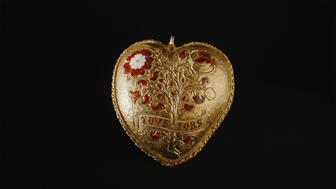
It is believed the 24-karat heart-shaped enameled pendant was made for an event marking the betrothal of Princess Mary in 1518.
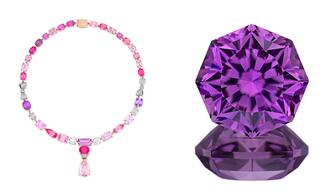
The AGTA Spectrum and Cutting Edge “Buyer’s Choice” award winners were announced at the Spectrum Awards Gala last week.
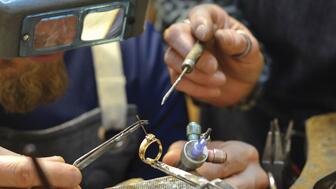
Launched in 2023, the program will help the passing of knowledge between generations and alleviate the shortage of bench jewelers.
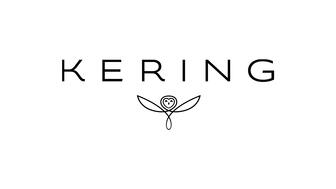
The “Kering Generation Award x Jewelry” returns for its second year with “Second Chance, First Choice” as its theme.

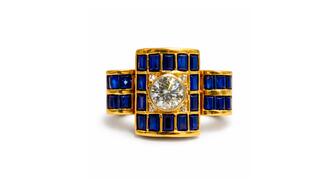
Sourced by For Future Reference Vintage, the yellow gold ring has a round center stone surrounded by step-cut sapphires.
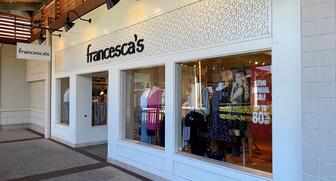
The clothing and accessories chain announced last month it would be closing all of its stores.
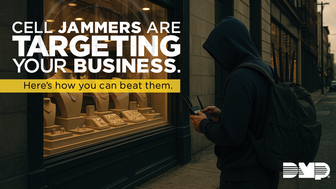
Criminals are using cell jammers to disable alarms, but new technology like JamAlert™ can stop them.

The “Zales x Sweethearts” collection features three mystery heart charms engraved with classic sayings seen on the Valentine’s Day candies.

The event will include panel discussions, hands-on demonstrations of new digital manufacturing tools, and a jewelry design contest.
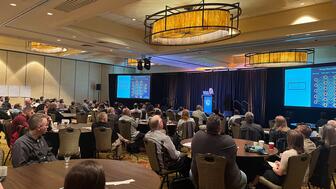
Registration is now open for The Jewelry Symposium, set to take place in Detroit from May 16-19.
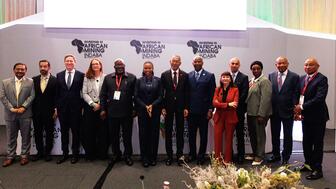
Namibia has formally signed the Luanda Accord, while two key industry organizations pledged to join the Natural Diamond Council.
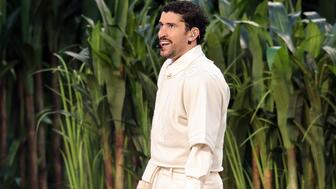
Lady Gaga, Cardi B, and Karol G also went with diamond jewelry for Bad Bunny’s Super Bowl halftime show honoring Puerto Rico.
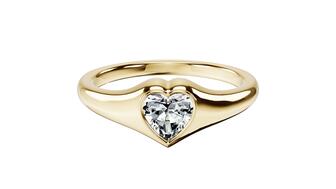
Jewelry is expected to be the No. 1 gift this year in terms of dollars spent.
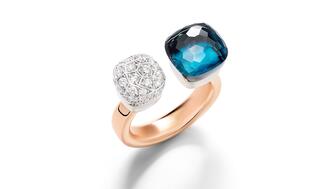
As star brand Gucci continues to struggle, the luxury titan plans to announce a new roadmap to return to growth.
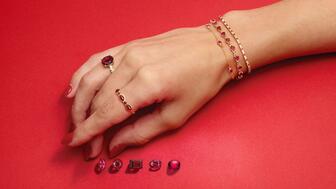
The new category asks entrants for “exceptional” interpretations of the supplier’s 2026 color of the year, which is “Signature Red.”

The White House issued an official statement on the deal, which will eliminate tariffs on loose natural diamonds and gemstones from India.
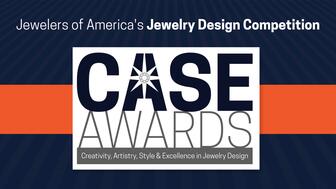
Entries for the jewelry design competition will be accepted through March 20.

The Ohio jeweler’s new layout features a curated collection of brand boutiques to promote storytelling and host in-store events.
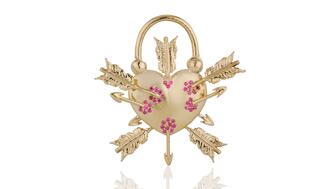
From heart motifs to pink pearls, Valentine’s Day is filled with jewelry imbued with love.

Prosecutors say the man attended arts and craft fairs claiming he was a third-generation jeweler who was a member of the Pueblo tribe.
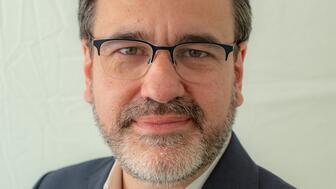
New CEO Berta de Pablos-Barbier shared her priorities for the Danish jewelry company this year as part of its fourth-quarter results.
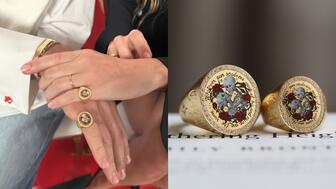
Our Piece of the Week picks are these bespoke rings the “Wuthering Heights” stars have been spotted wearing during the film’s press tour.
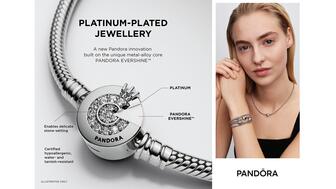
The introduction of platinum plating will reduce its reliance on silver amid volatile price swings, said Pandora.

It would be the third impairment charge in three years on De Beers Group, which continues to grapple with a “challenging” diamond market.


The Omaha jewelry store’s multi-million-dollar renovation is scheduled to begin in mid-May and take about six months.
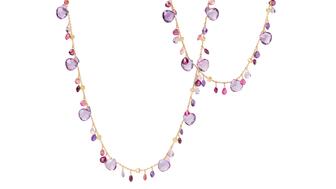
The “Paradise Amethyst” collection focuses on amethyst, pink tourmaline, garnet, and 18-karat yellow gold beads.

